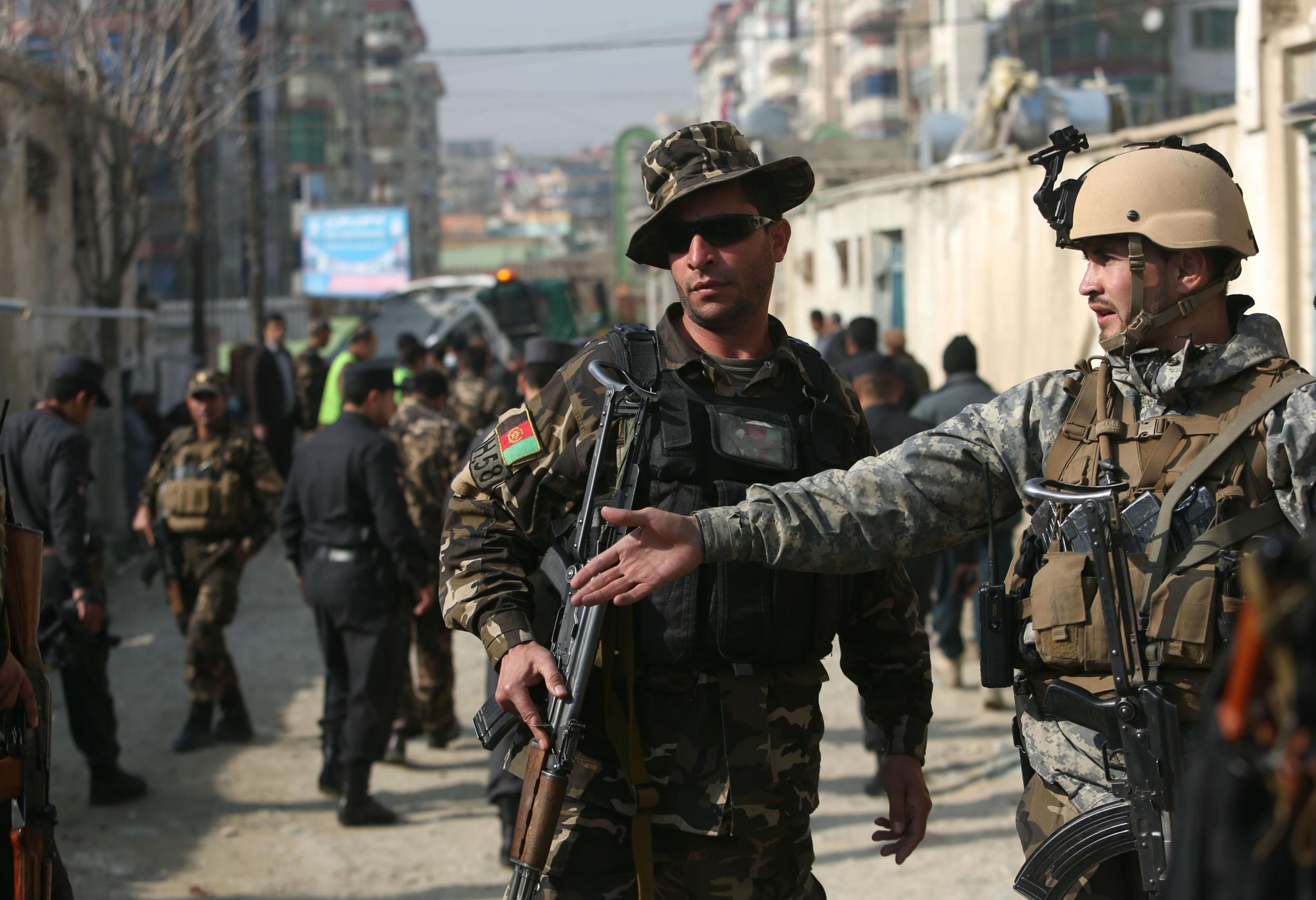Kabul faces 'imminent' terror attack, US warns
The warning came as the leaders of Afghanistan and Pakistan meet in Paris

Your support helps us to tell the story
From reproductive rights to climate change to Big Tech, The Independent is on the ground when the story is developing. Whether it's investigating the financials of Elon Musk's pro-Trump PAC or producing our latest documentary, 'The A Word', which shines a light on the American women fighting for reproductive rights, we know how important it is to parse out the facts from the messaging.
At such a critical moment in US history, we need reporters on the ground. Your donation allows us to keep sending journalists to speak to both sides of the story.
The Independent is trusted by Americans across the entire political spectrum. And unlike many other quality news outlets, we choose not to lock Americans out of our reporting and analysis with paywalls. We believe quality journalism should be available to everyone, paid for by those who can afford it.
Your support makes all the difference.The United States has said it had intelligence pointing to an “imminent” terror attack in Kabul, the capital of Afghanistan, and implored US citizens to “exercise extreme caution” when moving about the city for the coming 48 hours.
The bulletin, issued as usual by the US embassy, coincided with fresh tensions as the leaders of Afghanistan and neighbouring Pakistan met for informal talks on the fringes of the world climate change talks in Paris on resurrecting peace talks with Taliban insurgents.
In a statement issued on its website, the embassy said it had “received credible reports of an imminent attack in Kabul city, Kabul province, Afghanistan within the next 48 hours”.
It went on: “During this period of heightened threat, the U.S. Embassy strongly urges U.S. citizens to exercise extreme caution if moving around the city. There were no further details regarding the targets, timing, or method of the planned attack.”
Within hours of the warning being issued, the office of the Pakistani Prime Minister Nawaz Sharif confirmed in a statement that he had held talks in the French capital with Afghan President Ashraf Ghani on plans to resurrect peace talks with Taliban leaders.
Pakistan played host to a first round of talks between the government and Taliban delegates in July, boosting hopes that first steps might be made towards ending the 14-year-old Afghan War. However, they fell apart when it was revealed that the consistently elusive leader of the Taliban, Mullah Mohammad Omar, had in fact been dead for two years.
Among items discussed at the Sharif-Ghani meeting was the “resumption of the peace and reconciliation process" aimed at ending the conflict, the statement said.
"Both leaders agreed to work with all those who would enter such a process as legitimate political actors, and act, alongside the Afghan government, against those who refuse to take the path of peace."
Join our commenting forum
Join thought-provoking conversations, follow other Independent readers and see their replies
Comments